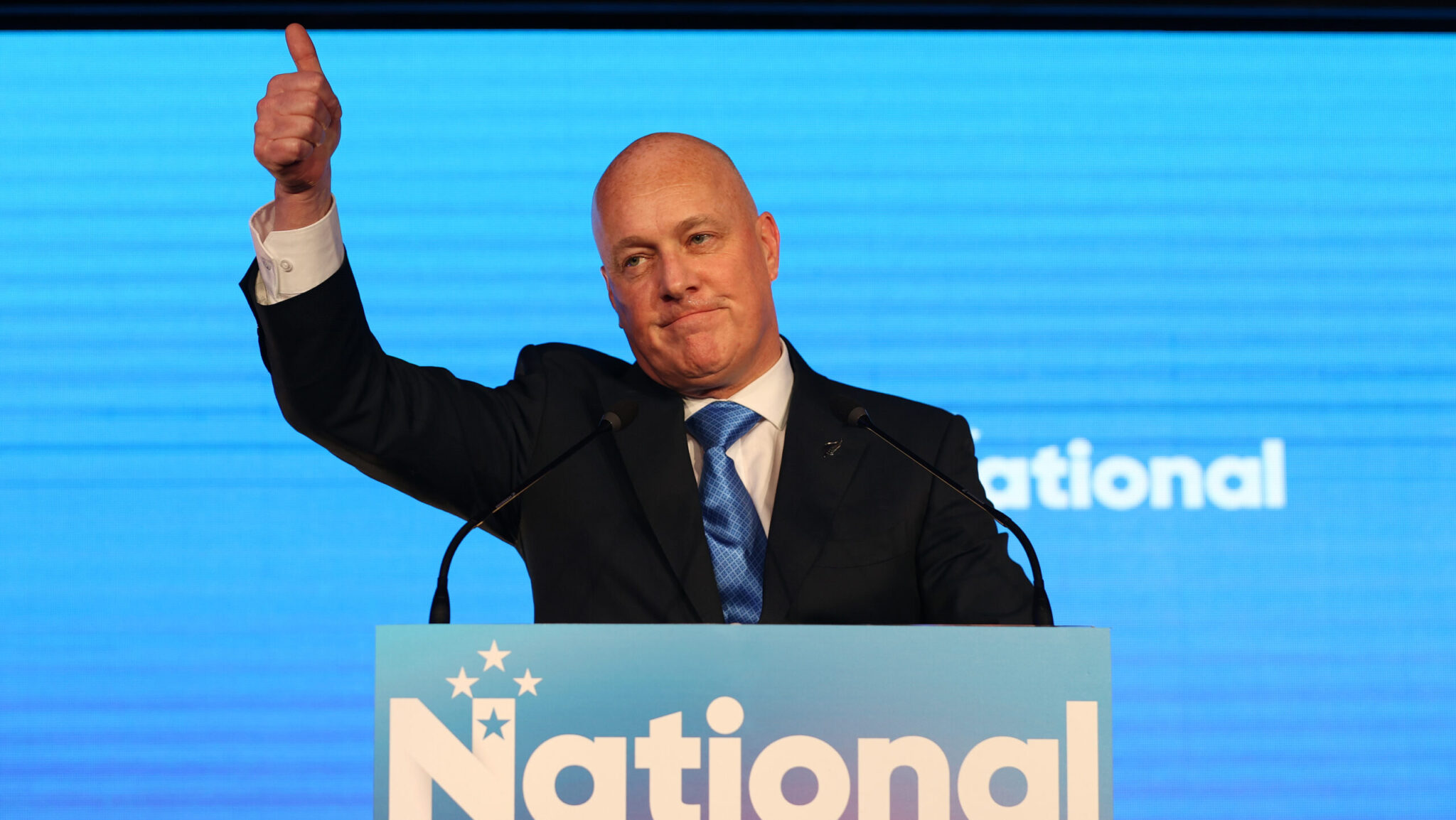Chris Luxon, the leader of the National Party and New Zealand’s likely next prime minister, has sounded more open to joining the AUKUS Pillar 2 technology initiative than the Labour party was.
AUCKLAND — The chances that New Zealand will sign up to Pillar 2 of the AUKUS agreement have dramatically increased following New Zealand’s general election on Oct. 14.
In a wholesale reversal of the 2020 election, the governing Labour Party was unceremoniously dumped out of office, falling from 64 to 34 seats in New Zealand’s 120-seat Parliament. Labour, firstly under prime minister Jacinda Ardern and her successor Chris Hipkins, were tentative at best about AUKUS Pillar 2 membership. There had been mixed messaging from senior cabinet ministers about its value for New Zealand as a Pacific regional player, and during the televised leadership debates in the lead-up to the election Hipkins had stated he “preferred other arrangements” to AUKUS.

In contrast, Chris Luxon, the leader of the National Party and New Zealand’s likely next prime minister, stated in the debates that he would “see how we can participate” in AUKUS and “explore” joining Pillar 2, although he also said it was “too early” to know what Pillar 2 would actually involve.
New Zealand is looking at is the package known as AUKUS Pillar 2, which involves the sharing of advanced technologies, including artificial intelligence (AI), quantum computing, cyber, undersea capabilities, hypersonic weapons, information-sharing and electronic warfare.
READ MORE
- New Zealand faces dilemma over AUKUS 'replicator' drone swarm plans
- With China in sights, New Zealand signals major defense policy shift
- AUKUS raises credibility questions for New Zealand’s naval power
- Nanaia Mahuta shuts door on NZ joining AUKUS after United States' Antony Blinken says it's 'very much open'
Despite the scale of Labour’s defeat, the National Party was not able to secure an outright majority with 38.9% of the vote giving it 50 seats at present. And “at present” is the key: “Special Votes” from overseas and from voters outside their home electorate have yet to be counted and are unlikely to do so until Nov. 3. Comprising some 20% of total votes, this could result in the loss of seats for National, as the historical trend is for much of these votes to go to left-wing parties.
Furthermore, this term could see an enlarged NZ Parliament of up to 122 or 123 seats because extra seats given to the Te Pati Maori Party to take account of additional electorate seat wins and because of a by-election bringing an extra seat.
As a result, Luxon is in the process of negotiating with two other right-wing parties. ACT, led by David Seymour, currently controls 11 seats, which when combined with National should be enough for the slightest of majorities — if the outstanding ballots don’t shift things as they are expected to. In that case, New Zealand First, led by the 80-year-old political veteran Winston Peters and currently holding eight seats, will be required to help Luxon get over the hump.
In terms of AUKUS, both ACT and NZ First are supportive of joining. Seymour stated in the run up to the election that he would push for Pillar 2 membership in any coalition government and that New Zealand “must pull its weight” in AUKUS. Peters has also been supportive in previous comments.
But the inclusion of Peters in a coalition could create problems, as NZ First has a tendency to go against ACT and National on key issues. Peters has formed administrations with both National and Labour three times in the past, as recently as from 2017-2020 when NZ First was a major coalition partner with the Green Party to support Labour’s Ardern.
During that time, NZ First took the foreign and defense portfolios with the defense minister, Ron Mark, driving through a new Strategic Defence Policy Statement (SDPS) in 2018 and the Defence Capability Plan (DCP) 2019 that brought forward key procurement programs. Those documents provided the foundation for Labour’s more recent Defence Policy Review published in August, which calls for a significant increase in defense spending above the normal 1% of GDP that the country has afforded until recently.
In terms of defense spending, the National Party is open to spending increases, ACT has called for a rise to 2% and in the past NZ First has called for a similar rise.
For now, those hoping to see New Zealand enter in some role in the AUKUS pact should be cheered. How this all shakes out will ultimately be seen in November, when final totals are known and the coalition is unveiled.





